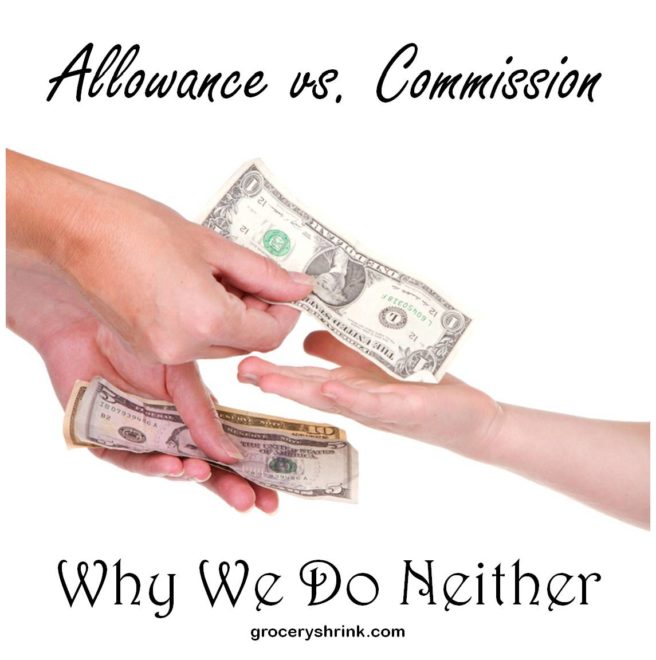
When I look at my kids, I want the world for them. I want to protect them from pain and sorrow and all of the hard. I can’t do that, I know. The pain and sorrow and hard is what works in their lives to build the character they need to be useful to God. Character is like money. It’s easier to develop character if you already have some. When bad stuff happens to people without foundational character, it makes them bitter. If I can’t protect my kids from all the bad, I want to at least equip them to get the most out of it when it happens.
With that in mind, I want them to know:
1. Money comes from Work. Work is just another word for helping people. It can be fun, but it doesn’t have to be fun. You are not above any legitimate job. My ultimate goal for you is to find work that uses the unique gifts and talents God gave you, but there may be a season in life where you just do a job because you need to eat.
2. Money doesn’t buy happiness, but it does buy choices. Money is a tool for you to use to provide for yourself and your family, to help other people, and to create opportunities. Money gives you more choices in life and I want you to have a lot of it. It’s better to be poor and have God than to be rich without him. But it’s even better to be both rich and Godly. The more money you have, the more people you can help.
3. Patience is the opposite of impulsive. It’s being willing to wait until you understand something before you invest in it. It’s waiting for a good price. It’s saving up cash to make a purchase instead of borrowing money. Patience will save you a ton of money.
4. Budgeting is freedom. It’s knowing how much money you have, what your necessary bills are and making a decision about what you are going to spend your money on ahead of time. Budgeting brings order to chaos, harmony to marriage, and prosperity in scarcity. The easiest way to stay on budget is to use cash envelopes so you can see at a glance at the time of purchase where you are with your plan.
5. Tithing and giving is a blessing. Everything you have already belongs to God. He just asks for 10% back as a good faith gesture, the rest you get to manage for Him. In exchange He offers you greater prosperity if you are faithful with your management. Giving is separate from tithing and it’s supposed to feel good. There will be hands coming at you from every direction asking for your money. As a manager for God you need to make sure that you give well, research and choose wisely. The most satisfying form of giving is done in secret and blesses someone directly.
6. You deserve it when you can pay cash for it. We live in a prosperous nation, so it’s hard to feel how rich we really are. Messages bombarde us from the media: “You deserve a vacation” “You deserve a new car” “You deserve a fashionable outfit” There’s nothing wrong with having nice things. Borrowing money to get them, however, brings pain to your life. It’s spending money you haven’t earned yet, which makes future work feel like working for no pay, slavery. It causes stress which can lead to arguments, sleepless nights, and illness. So when you are tempted to borrow money for something you “deserve” remind yourself: “You deserve to be free.” “You deserve a peaceful sleep” “You deserve good relationships and good health” You deserve it when you can pay for it.
7. Stuff happiness isn’t lasting happiness. When you get something new, it feels really good for a moment, but that good feeling won’t last. It’s not wrong to feel good when you get something new, but don’t chase that brand of happiness. Lasting happiness comes from knowing you belong to God and that He is personally invested in you. It comes from living a life of service to Him by serving others.
This is day 2 of our series: 31 days of Kids and Money





